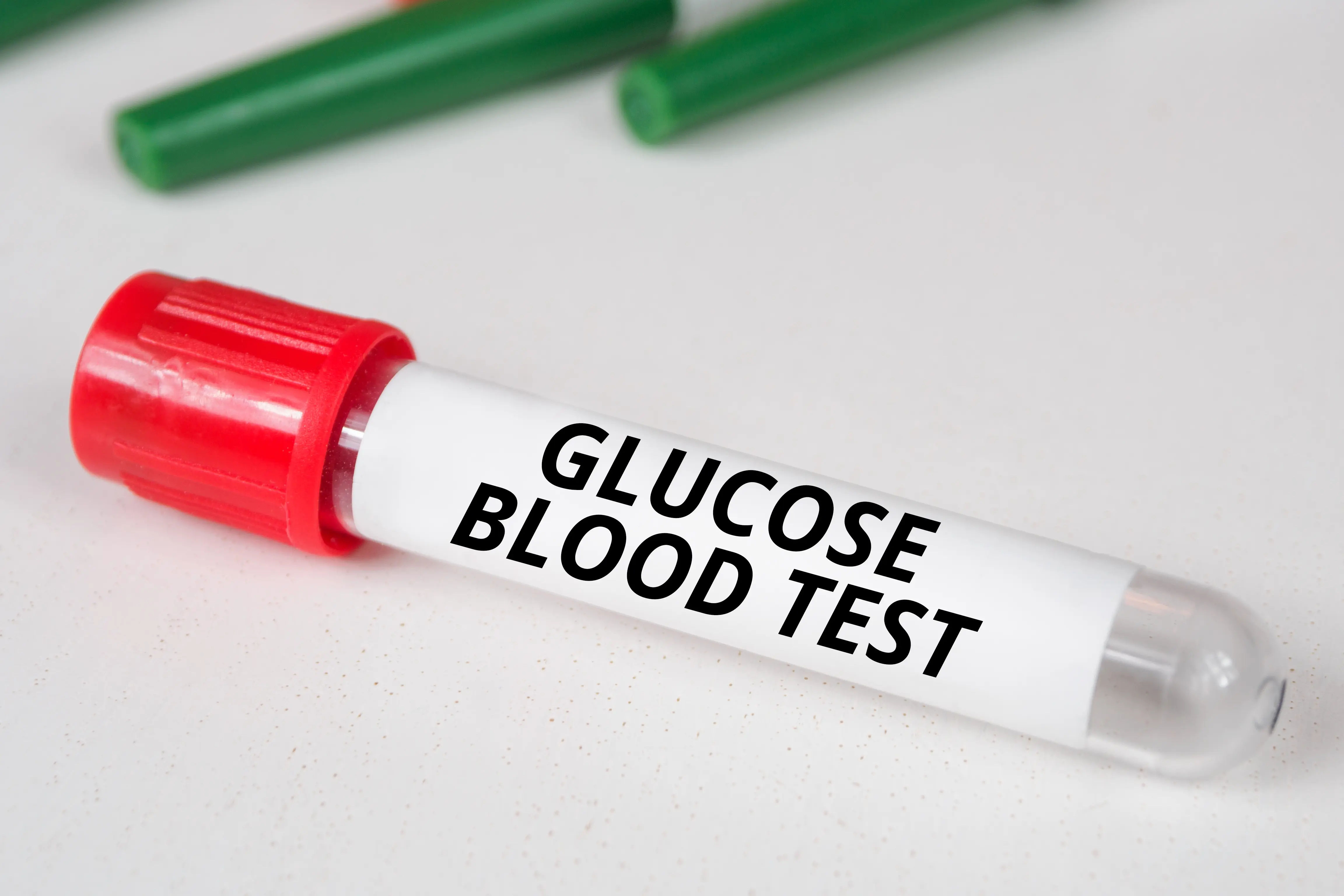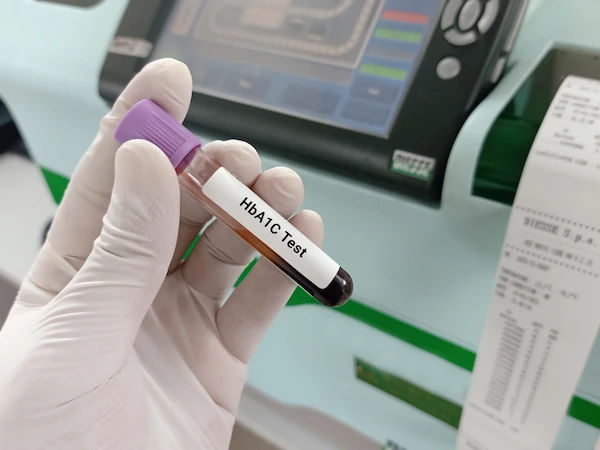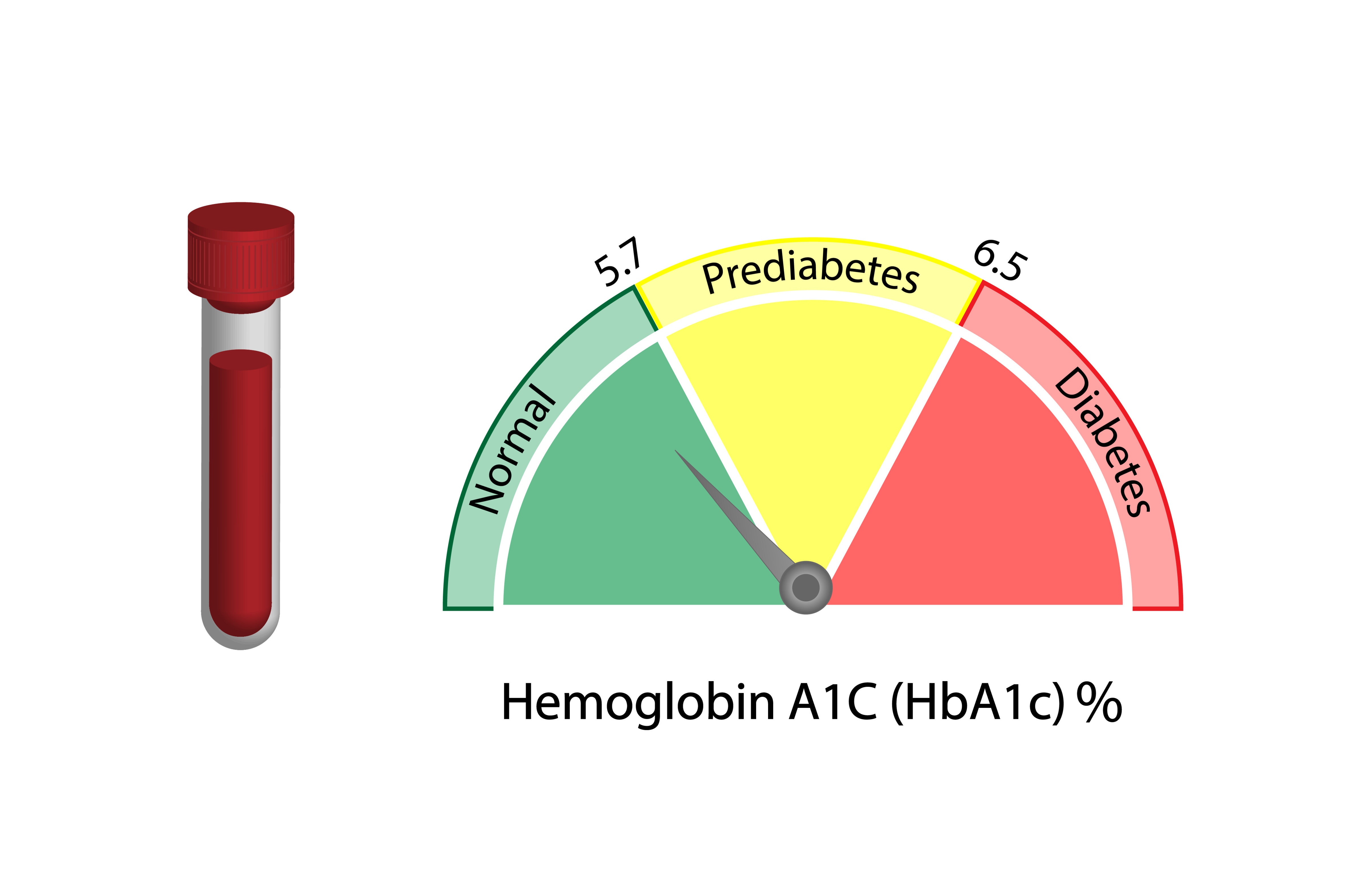What Is an HbA1c Test and When Should You Take It?
Understand the HbA1c test: what it measures, why it's crucial for diabetes management & diagnosis, and when you should get tested. Get insights into your blood sugar levels.

Written by
Last updated on 14th Jul, 2025

If you live with diabetes or are at risk, you've probably heard of the HbA1c test. While terms like "blood sugar" and "glucose" are common, understanding the HbA1c test is crucial for managing your condition effectively and preventing complications. This important blood test provides a bigger picture of your blood sugar control than daily checks, offering insights that can guide your treatment and lifestyle choices. For diabetics, regularly tracking your HbA1c levels is a cornerstone of maintaining long-term health.
Understanding what the HbA1c test measures, how to prepare for it, and what your results mean can empower you to take a more active role in your diabetes management. It's not just a number; it's a vital tool that helps you and your doctor assess how well your body has been managing blood sugar over time. This guide will explore the procedure, preparation, and interpretation of the HbA1c test, helping you understand when and why you should take it.
Understanding the HbA1c Test and Its Role in Managing Blood Sugar
The HbA1c test, also known as the glycated haemoglobin test, is a simple blood test that shows your average blood sugar levels over the past two to three months. Unlike a regular blood sugar check, which reflects your glucose at a single moment, the HbA1c test gives a long-term view of how well your blood sugar has been managed.
How the Test Works
Haemoglobin is a protein in red blood cells that carries oxygen throughout your body. When sugar (glucose) is present in the bloodstream, some of it naturally attaches to haemoglobin. This process is called glycation. The higher your blood sugar levels, the more glucose binds to your haemoglobin. Since red blood cells live for about three months, the test reflects your average blood sugar level over that time.
Why the HbA1c Test Is More Reliable Than a Single Blood Sugar Check
Unlike a finger-prick test that only shows your blood sugar at one point in time, the HbA1c test offers a bigger picture by averaging your levels over a few months. This helps reduce the impact of short-term changes caused by food, stress, exercise, or medications.
Because of its long-term accuracy, the HbA1c test is a valuable tool for diagnosing prediabetes and diabetes, monitoring how well a treatment plan is working, and assessing the risk of long-term complications such as nerve damage, kidney disease, and heart problems. Regular testing helps both you and your doctor make informed decisions about managing your blood sugar and overall health.
When Should You Take an HbA1c Test?
The HbA1c test is an important tool used to diagnose diabetes and monitor how well it is being managed over time. Your doctor may recommend this test depending on your symptoms, risk factors, or current health condition.
For Diagnosing Prediabetes or Diabetes:
- If you have symptoms: The test may be recommended if you’re experiencing signs of diabetes, such as increased thirst, frequent urination, fatigue, or unexplained weight loss.
- If you have risk factors: This includes being overweight, age 40 or older, having a family history of diabetes, or having conditions like high blood pressure or high cholesterol.
- As part of routine screening: Even if you don’t have symptoms, the test may be included in a regular checkup if you fall into a higher-risk category.
For Monitoring Known Diabetics:
- To assess blood sugar control: If you’ve already been diagnosed with diabetes, the HbA1c test helps measure your average blood sugar levels over the past two to three months.
- To adjust treatment: Your doctor may use the results to fine-tune your medications, diet, or physical activity to better manage your blood sugar.
- How often to test: Most people with diabetes take the HbA1c test at least twice a year. If your blood sugar is not well-controlled or if your treatment plan has changed, your doctor may recommend testing every three months.
Key Aspects of the HbA1c Test
Understanding the practical details of the HbA1c test can help you feel more prepared and confident.
1. Procedure: A Simple Blood Draw
- The HbA1c test is a routine blood test. A healthcare professional will draw a small sample of blood, usually from a vein in your arm. The process is quick and generally takes only a few minutes.
2. Preparation: No Fasting Required
- One of the great advantages of the HbA1c test is that you do not need to fast or make any special dietary changes before the test. You can eat and drink normally. This makes it a very convenient test to schedule.
3. Interpreting Your Results: What Do the Numbers Mean?
The HbA1c test result is shown as a percentage, representing your average blood sugar levels over the last two to three months. This helps assess your risk for diabetes and guides your healthcare plan.
- Normal (Below 5.7% or 39 mmol/mol): Reflects healthy average blood glucose levels. No signs of prediabetes or diabetes are present.
- Prediabetes (5.7% to 6.4% or 39–47 mmol/mol): Indicates elevated blood sugar that hasn't yet reached diabetic levels. This stage signals an increased risk for Type 2 diabetes and cardiovascular disease. With timely lifestyle changes, such as healthy eating and regular physical activity, prediabetes can often be reversed.
- Diabetes (6.5% or higher or 48 mmol/mol and above): Confirms a diagnosis of diabetes. Your doctor will likely recommend a personalised treatment plan, which may include medication, dietary adjustments, and regular monitoring to manage your condition effectively.
Target for Most Diabetics:
For most adults with diabetes, the American Diabetes Association (ADA) generally recommends an HbA1c goal of below 7% (53 mmol/mol) to minimise the risk of complications. Your specific target might vary based on your age, other health conditions, and how long you've had diabetes. Your doctor will discuss the best target for you.
The results from your HbA1c test, combined with your symptoms, daily blood sugar readings, medical history, and overall health goals, will help your doctor accurately assess your diabetes control. This detailed understanding allows them to create or adjust a targeted management plan designed to help you live a healthier life and prevent long-term complications.
Get Your HbA1c Test Done Easily with Apollo 24|7
If your doctor has advised an HbA1c test to monitor your blood sugar levels, choosing a trusted and convenient testing service can make all the difference. Apollo 24|7 offers reliable lab testing with fast, accurate results, helping you and your doctor track your long-term glucose control and make informed decisions about your health.
Why Choose Apollo 24|7 for Your HbA1c Test?
- Comprehensive Test Panels: Apollo 24|7 facilitates access to crucial tests like the HbA1c Test, often part of broader Diabetes Blood Test panels.
- NABL-Accredited Labs: Tests are conducted in high-quality labs certified by the National Accreditation Board for Testing and Calibration Laboratories (NABL), ensuring trusted accuracy and reliability for your results.
- Home Sample Collection: No need to travel; get blood samples collected conveniently from your home at a time that suits you, offering privacy and comfort.
- Easy Online Booking: Book your tests effortlessly through the user-friendly Apollo 24|7 app or website with just a few clicks.
- Fast Digital Reports: Receive secure, detailed reports swiftly online, delivered directly to your device, ready for your doctor to review.
- Trusted Brand: Benefit from the trusted expertise and healthcare legacy of Apollo Hospitals Group, one of India’s most respected medical networks.
By choosing Apollo 24|7, you get access to dependable, convenient diagnostic services that make it easier to understand and manage your liver health effectively.
For the most accurate and current HbA1c test price, it is best to check the Apollo 24|7 website, use their mobile app, or contact their customer support team directly. Pricing may vary based on your location, available offers, or membership benefits.
Get These Tests To Get A Yourself Checked up
Conclusion
The HbA1c test is an essential tool for anyone managing diabetes or at risk of developing it. By showing your average blood sugar levels over several months, it provides important information that daily tests alone cannot reveal.
Knowing how the test works, understanding that fasting is not required, and learning how to interpret your results are important steps toward better diabetes management. This test allows your doctor to adjust your treatment plan, detect prediabetes early, and help you make informed decisions about your health. If you have diabetes or think you might, talk to your doctor about when and how often you should have the HbA1c test to stay in control of your health.





